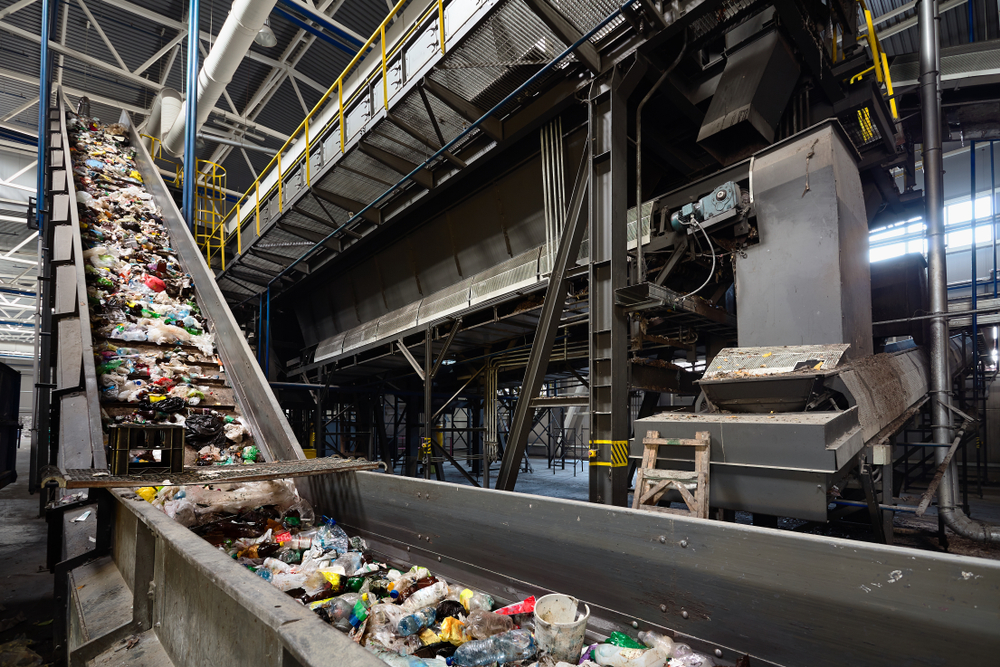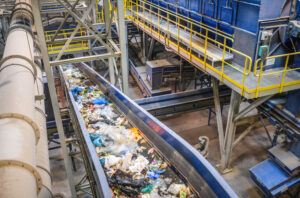Keep conveyor belts clean: Ensuring your conveyor belts remain clean and operational is essential to prevent productivity loss and safety hazards at any materials recycling plant. Conveyor belt spillages, carryback, and downtime can lead to increased maintenance costs, reduced output, and even workplace accidents. As a recycling plant manager, it is crucial to implement preventive measures to help maintain your conveyor belts in optimal condition and avoid these issues.
In this blog post, we’ll go over some practical ways to keep your conveyor belts clean and operational, preventing spillages, carryback, and downtime at a materials recycling plant.
- Regular Maintenance and Inspection
Regular maintenance and inspection are essential to keep your conveyor belts clean and operational. An efficient maintenance program should include scheduled inspections, cleaning, lubrication of your conveyor belts as well as replacement of any worn or damaged parts. Inspections should be conducted by trained staff who can identify potential issues before they cause significant problems.
- Proper Cleaning Techniques
Proper cleaning techniques are necessary to prevent spillages and carryback on your conveyor belts. Dry cleaning methods, such as vacuum and air blast cleaning, can effectively remove dirt and debris without causing corrosion. Water and detergents are commonly used to clean conveyor belts, but excessive moisture can cause rust and damage to bearings, rollers, and other components.
- Conveyor Belt Scrapers
Conveyor belt scrapers are an effective way to prevent carryback and maintain a clean conveyor belt surface. The scraper works by scraping material off the conveyor belt before it reaches the end pulley, preventing material buildup and spillages. Different types of scraper systems, including primary, secondary, and urethane scrapers, offer varying degrees of cleaning efficiency.
- Training and Safety
Training and safety measures are critical to prevent workplace accidents and ensure proper use of conveyor belts. Staff should receive training on operating, maintaining, and inspecting conveyor belts to prevent unsafe working conditions and costly accidents. Safety barriers and sensors should be in place to detect blockages and provide automatic shut-off in an emergency.
- Conveyor Belt Tracking
Conveyor belt tracking issues are a common problem at recycling plants, leading to belt misalignment and excessive wear on components. Belt tracking can be improved by installing tracking rollers, ensuring proper belt tensioning, identifying and repairing any damage to pulleys or supports, and reducing material spillages.
Keeping conveyor belts clean and operational is essential to prevent spillages, carryback, and downtime at a recycling plant. Regular maintenance and inspection, proper cleaning techniques, conveyor belt scrapers, training and safety, and conveyor belt tracking are practical measures that can help maintain your conveyor belts in optimal condition and avoid costly downtime. As a recycling plant manager, it is essential to implement these practices to ensure the safety of your staff, the productivity of your operations, and the efficiency of your equipment.
ARRANGE YOUR FREE SITE SURVEY TODAY:
Drop us a quick note below, and one of our team will be in touch.





